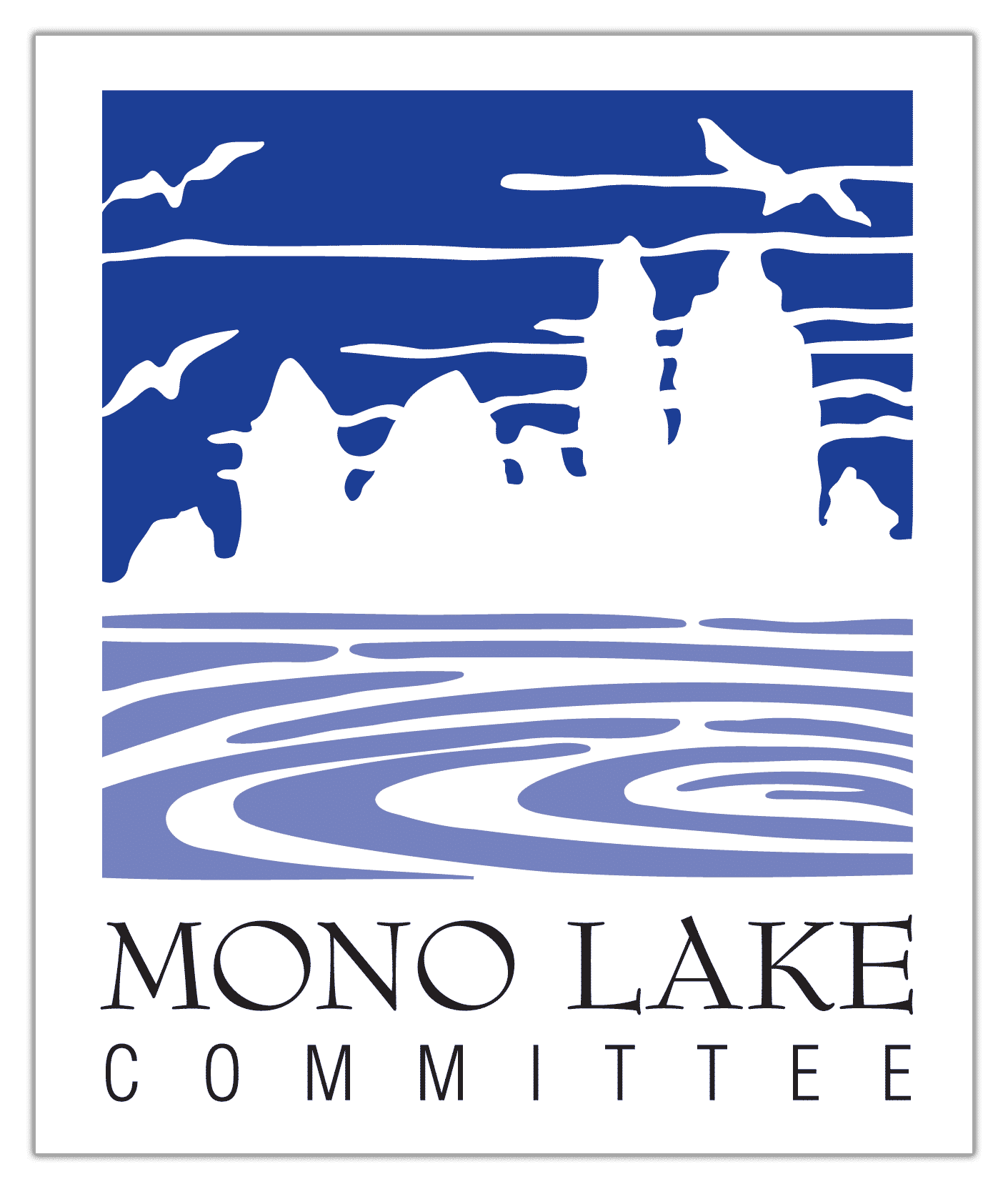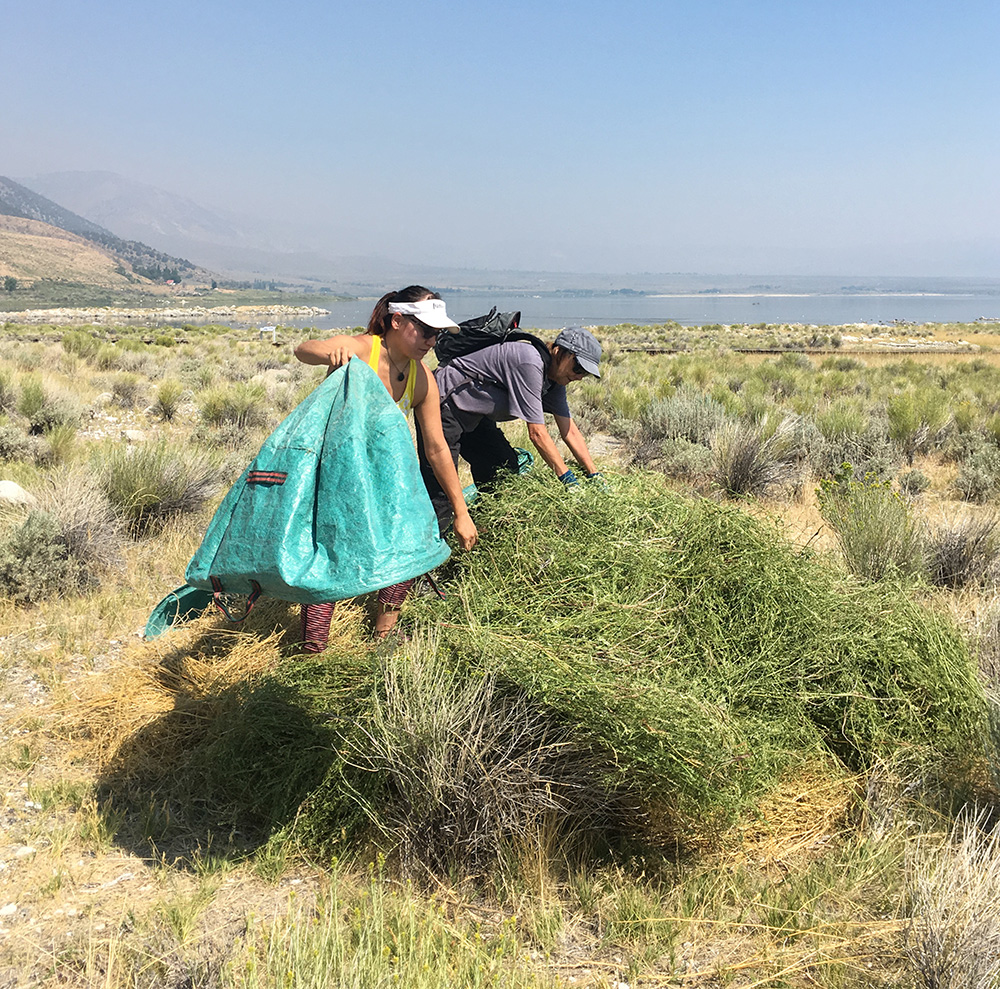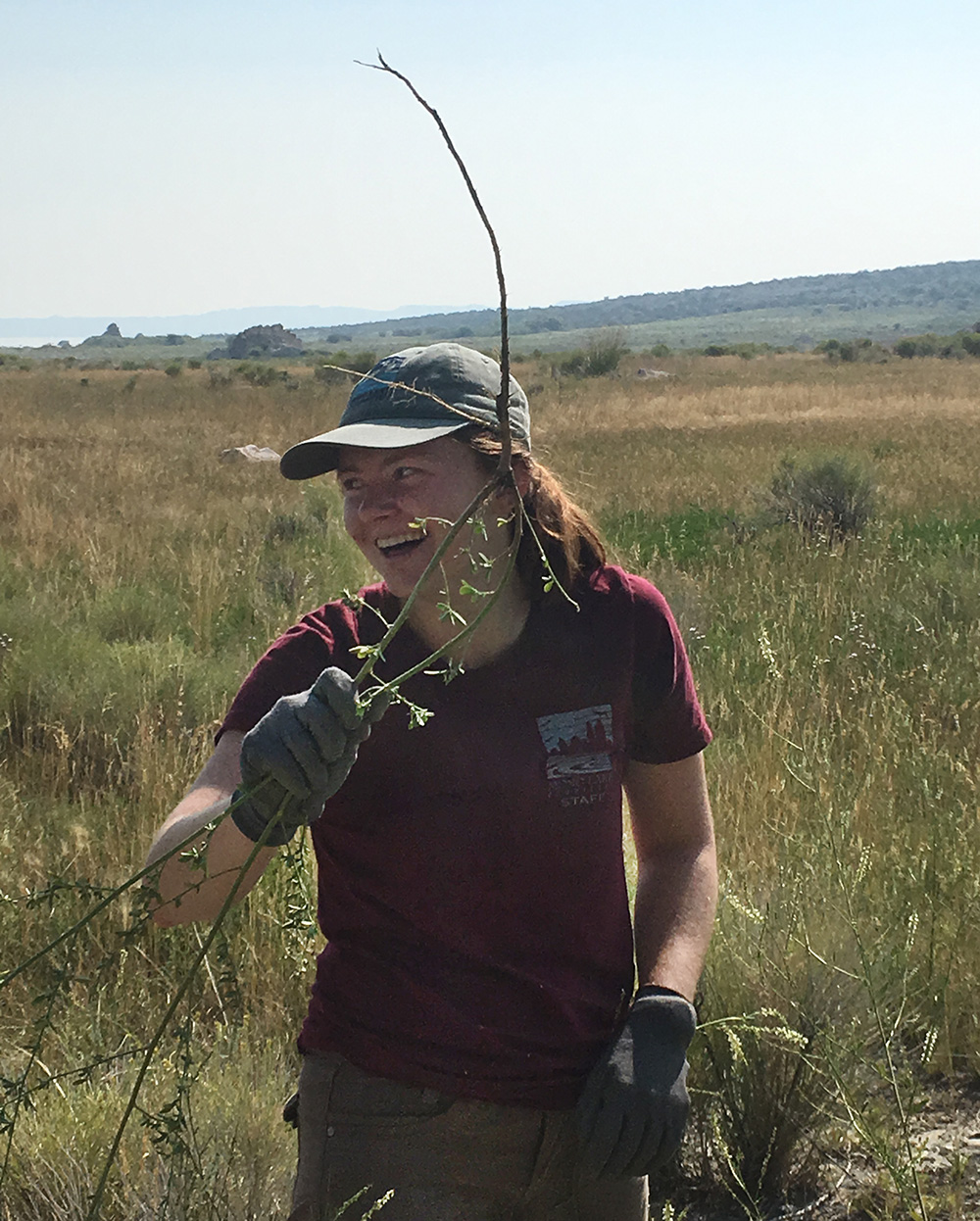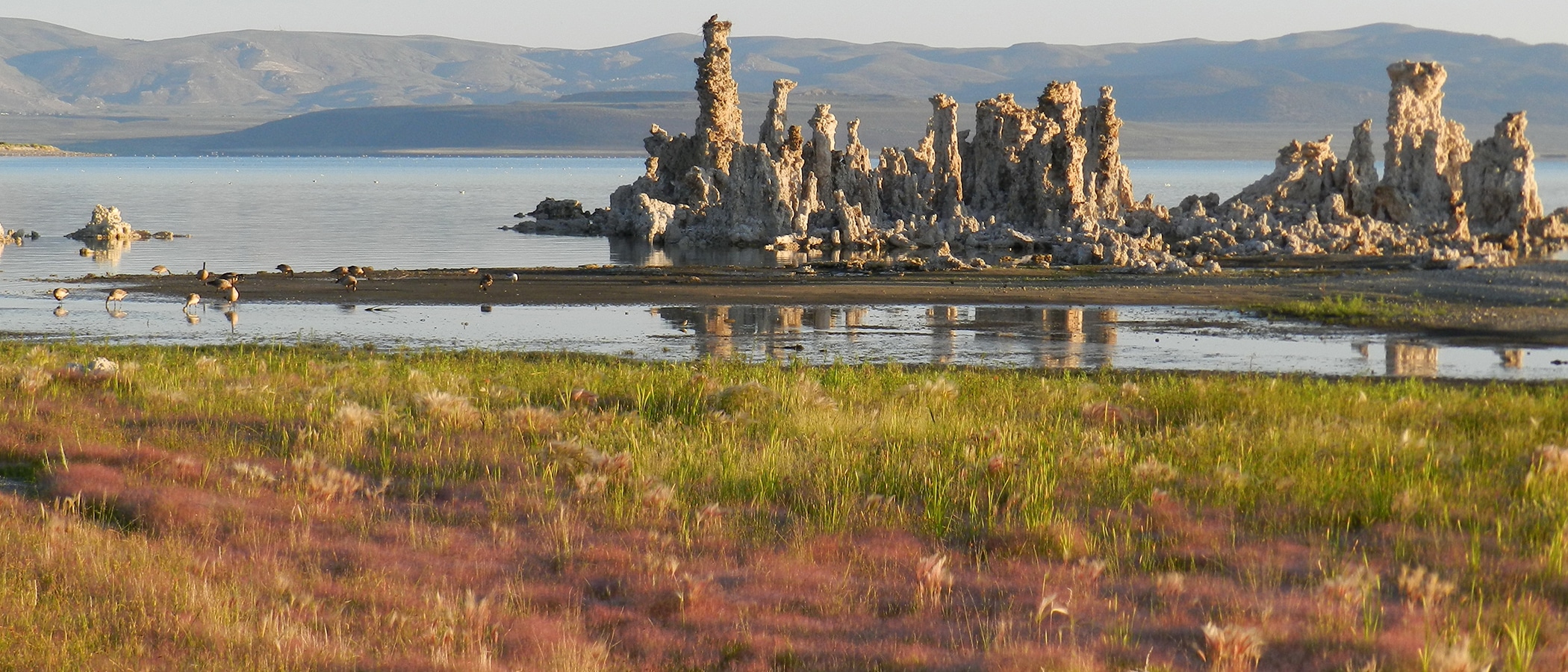
This post was written by Nigel Bates, 2018 Birding Intern.
This summer, Mono Lake Committee staff, volunteers, and guest naturalists made substantial progress toward removing invasive white sweet clover (Melilotus albus) from the Old Marina area. This annual project is a crucial piece of the Committee’s mission to restore native habitats throughout the Mono Basin.
Sweet clover can quickly overtake an ecosystem if it is not held in check, so our yearly invasive removal events are critical to maintaining the biodiversity of the area. Over the course of two mornings, we removed 199.75 pounds of sweet clover! This marked one of our most efficient summers ever, with each participant pulling an average of 17 pounds. Thanks to all of our volunteers for their hard work and good spirits.
As we pulled sweet clover, we were treated to informal lectures by our guest naturalists, Joe Woods and Ann Howald. Joe leads the Mono Basin invasive removal campaign for California State Parks, and he related some of his extensive experience fighting sweet clover and other invasives. Ann is a botanist and frequent Field Seminar leader who shared her wealth of knowledge about Mono Basin ecosystems and the plants and animals that call them home. Thanks to Joe and Ann for volunteering their time, energy, and expertise!
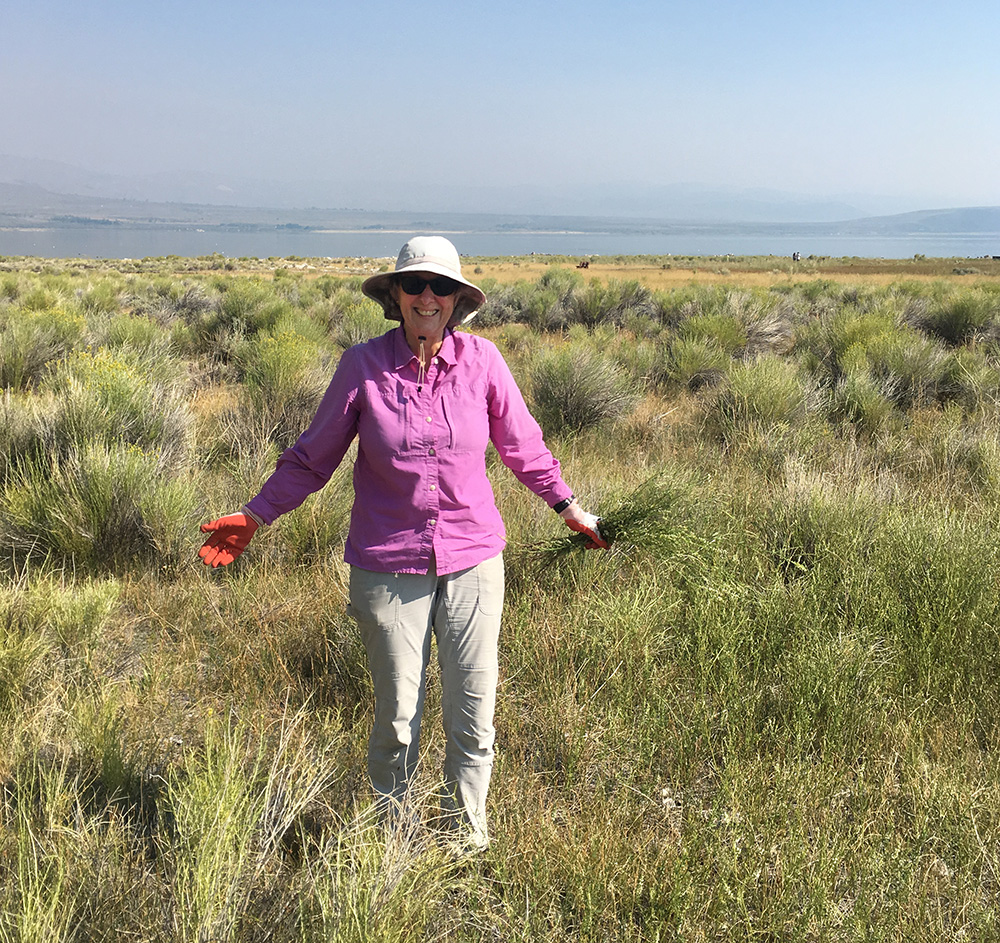
Want to help out? There are plenty of ways you can get involved to stop the spread of invasive plants. One great step is to create a native landscape in your yard, and to recognize and remove invasive plants so they don’t spread to surrounding natural areas. When you’re traveling, make sure not to transport invasive seeds between locations by brushing off your shoes and backpack before you get in the car. Here at Mono Lake, our invasive removal program will start up again next summer. We’re always looking for more volunteers, so now is a great time to learn more about becoming a volunteer—and keep an eye on the Mono-logue for future volunteer opportunities. You may also want to consider becoming a Mono Lake Committee member to support our restoration efforts. With your help, we can preserve native ecosystems on the shores of Mono Lake for years and years to come.
